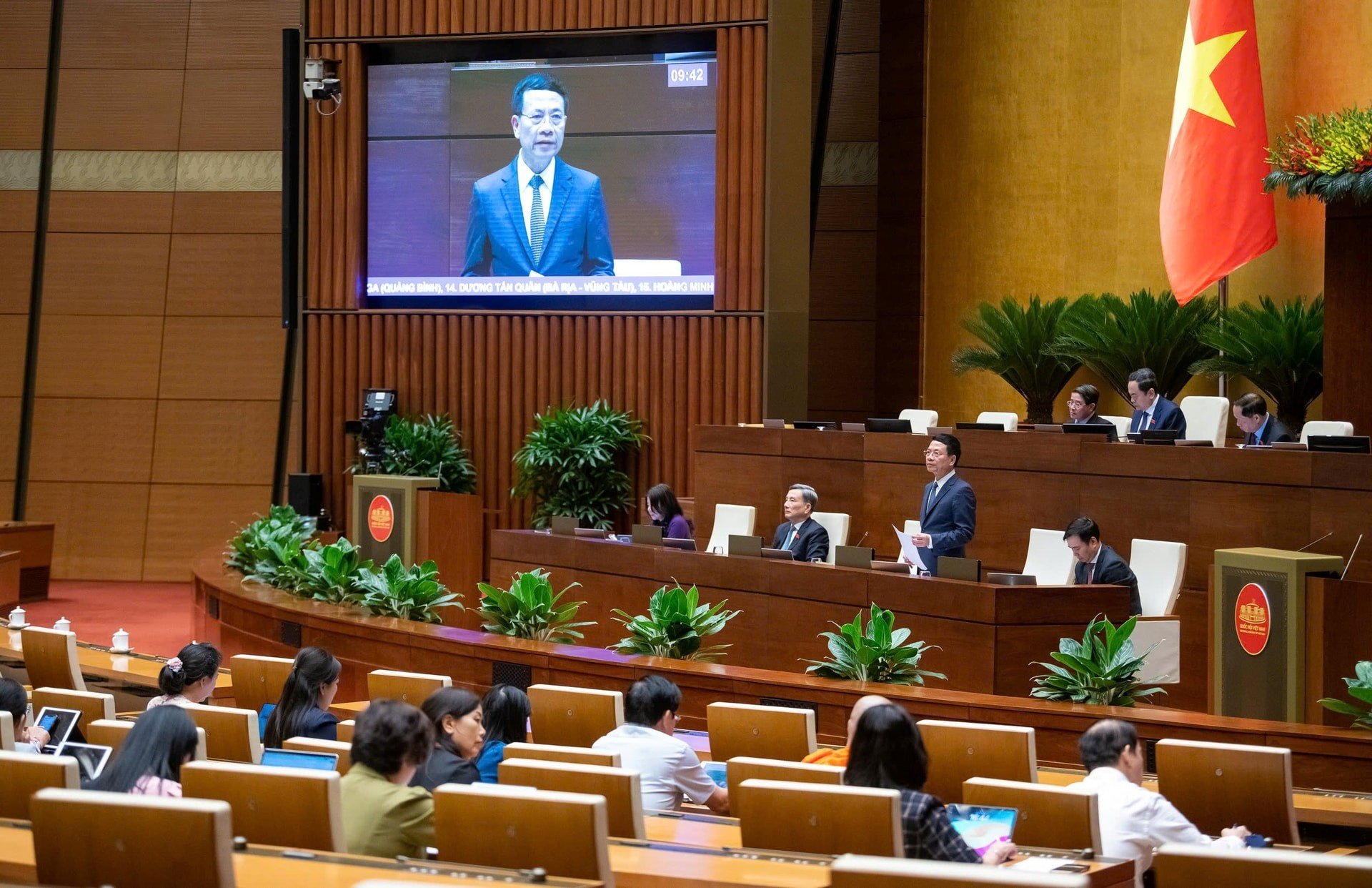 |
| The meeting on May 13 discussed the Draft Law on Science , Technology and Innovation. (Photo: National Assembly Information Center) |
Contributing opinions to the draft Law, delegate Tran Thi Nhi Ha, Vice Chairwoman of the People's Aspirations and Supervision Committee, said that the Law should stipulate that at least 20% of the annual science and technology budget of ministries, branches and localities must be spent on ordering domestic science and technology products. Clearly stipulating a mandatory rate will create motivation and pressure for implementation, instead of just encouraging voluntary participation as at present. Along with that are policies to support output, transfer and commercialization of research products.
Regarding the Science and Technology Development Fund of Enterprises (Article 65), delegate Tran Thi Nhi Ha said that it is necessary to allow a maximum deduction of 15% of taxable income. Particularly for enterprises operating in the fields of high technology, digital technology , strategic technology such as chips, AI, big data, the maximum level is 20% to create enough room for investment in research and innovation.
In addition, it is necessary to expand the list of expenditures from the fund such as salaries for research and development personnel, hiring experts, purchasing materials and components for testing, testing sample products, attending specialized seminars, testing, purchasing equipment, machinery and technological products directly serving research activities.
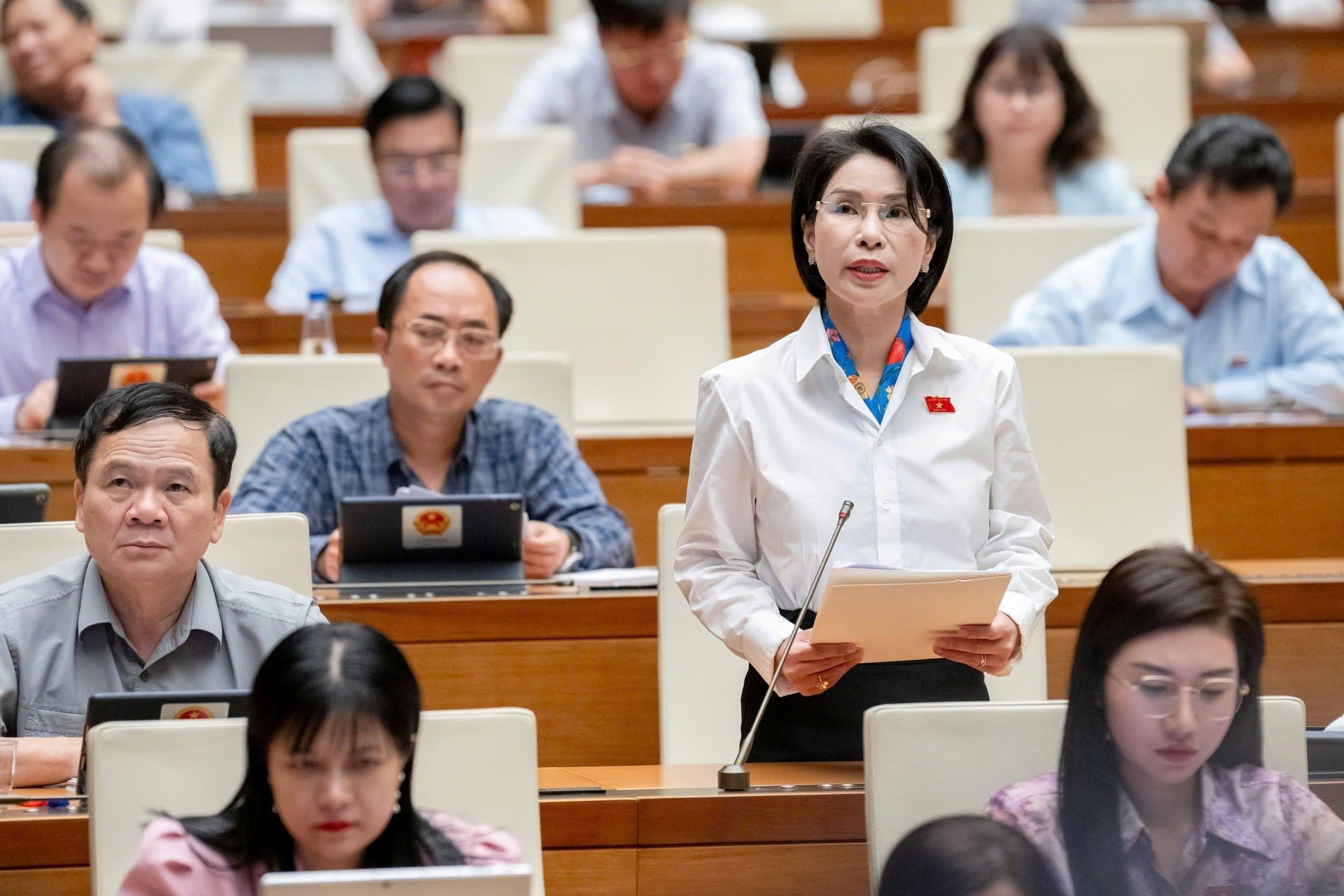 |
| Delegate Tran Thi Nhi Ha, Vice Chairwoman of the Committee for People's Aspirations and Supervision. (Photo: National Assembly Information Center) |
Sharing the same view, delegate Sung A Lenh, Deputy Head of the National Assembly Delegation of Lao Cai province, said that it is possible to allow enterprises to allocate up to 20% of taxable income to establish a fund for science and technology development, innovation, digital transformation and research and development. This will not only help enterprises have more resources to invest systematically and long-term in science and technology and innovation, but also contribute to realizing the goal of developing strong, sustainable private enterprises with regional and global competitiveness.
According to delegate Vuong Quoc Thang, National Assembly Delegation of Quang Nam province, the draft Law needs to focus more on policies to promote the development of scientists in a profound and sustainable manner; ensuring that the Law is also an inspirational message for young generations, students, and pupils with aspirations, ideals and passion to become scientists to build, develop and protect the country.
Delegate Vuong Quoc Thang added that the draft Law needs to have policies for developing science, technology and innovation, prioritizing green, circular and environmental protection activities. At the same time, it is necessary to consider adding mechanisms and policies to encourage co-funding between businesses and higher education institutions in implementing science and technology tasks.
In particular, it is necessary to add the regulation that "press agencies, People's Committees, Vietnam Fatherland Front Committees at all levels, and socio-political organizations are responsible for disseminating and spreading scientific and technological knowledge and innovation.
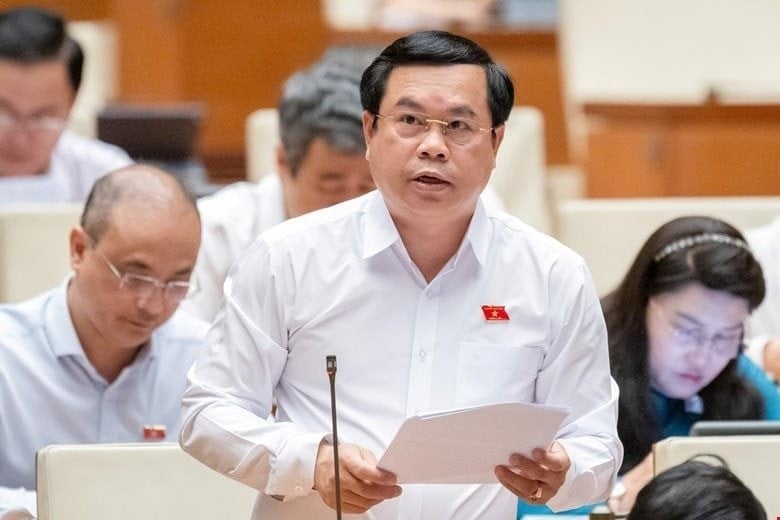 |
| Delegate Vuong Quoc Thang, National Assembly Delegation of Quang Nam Province. (Photo: National Assembly Information Center) |
In addition to the above opinions, many National Assembly delegates also contributed additional views and analyses from different perspectives. The common point among the opinions is the high consensus on the promulgation of the Law on Science, Technology and Innovation. The delegates said that this is a necessary step to fully and promptly institutionalize the Party's guidelines and the State's policies. At the same time, they expect that the Law will create a synchronous legal corridor, laying the foundation for the country's sustainable development in the new era.
Minister of Science and Technology Nguyen Manh Hung highly appreciated the enthusiastic contributions of the National Assembly deputies, affirming that the Ministry will closely coordinate with the National Assembly's Committee on Science, Technology and Environment to study, review, absorb and complete the draft Law. Thereby, it aims to ensure that the Law on Science, Technology and Innovation is practical, feasible and consistent with the current legal system and related laws.
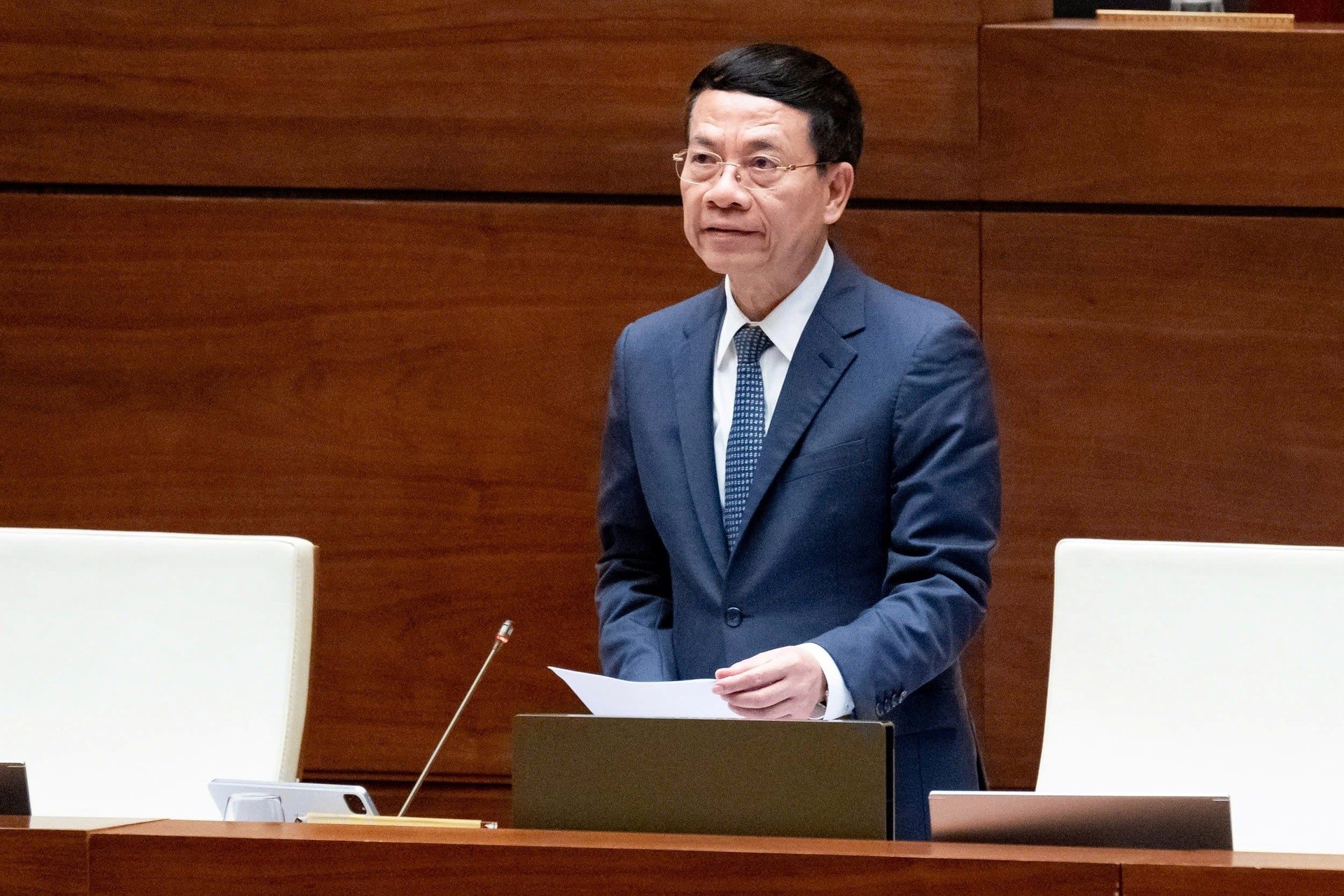 |
| Minister of Science and Technology Nguyen Manh Hung highly appreciated and accepted the opinions of the delegates. (Photo: National Assembly Information Center) |
The draft Law on Science, Technology and Innovation consists of 8 chapters and 83 articles (2 more articles than the 2013 Law on Science and Technology). Due to the addition of innovation content and restructuring of the Law, there are many changes in form compared to the current Law. The Law on Science, Technology and Innovation regulates the activities of organizations and individuals in the fields of science, technology and innovation; measures to ensure the development of science and technology and promote innovation; regulations on State management of science, technology and innovation to contribute to enhancing national competitiveness, socio-economic development, ensuring national defense and security, improving the quality of people's lives, protecting the environment and promoting sustainable development. This Law applies to organizations and individuals engaged in science, technology and innovation activities in Vietnam or outside the territory of Vietnam but have rights and obligations under Vietnamese law and international treaties to which Vietnam is a member. |
Source: https://thoidai.com.vn/dai-bieu-hien-ke-phat-trien-quy-phat-trien-khoa-hoc-va-cong-nghe-213481.html


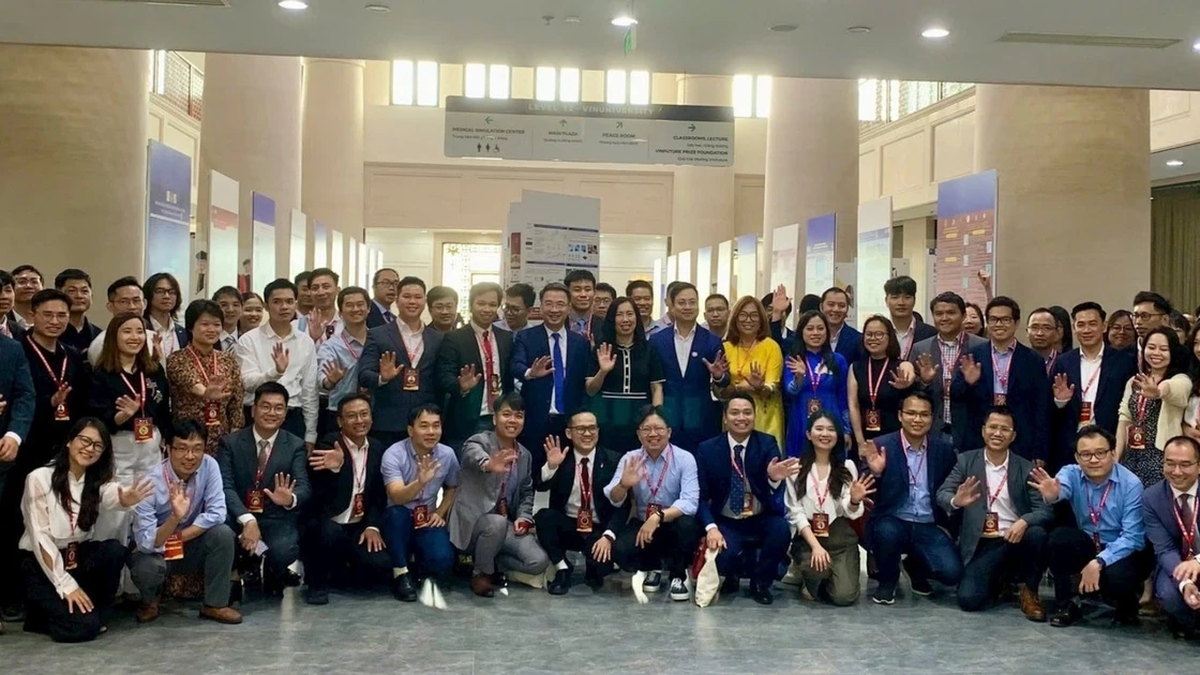

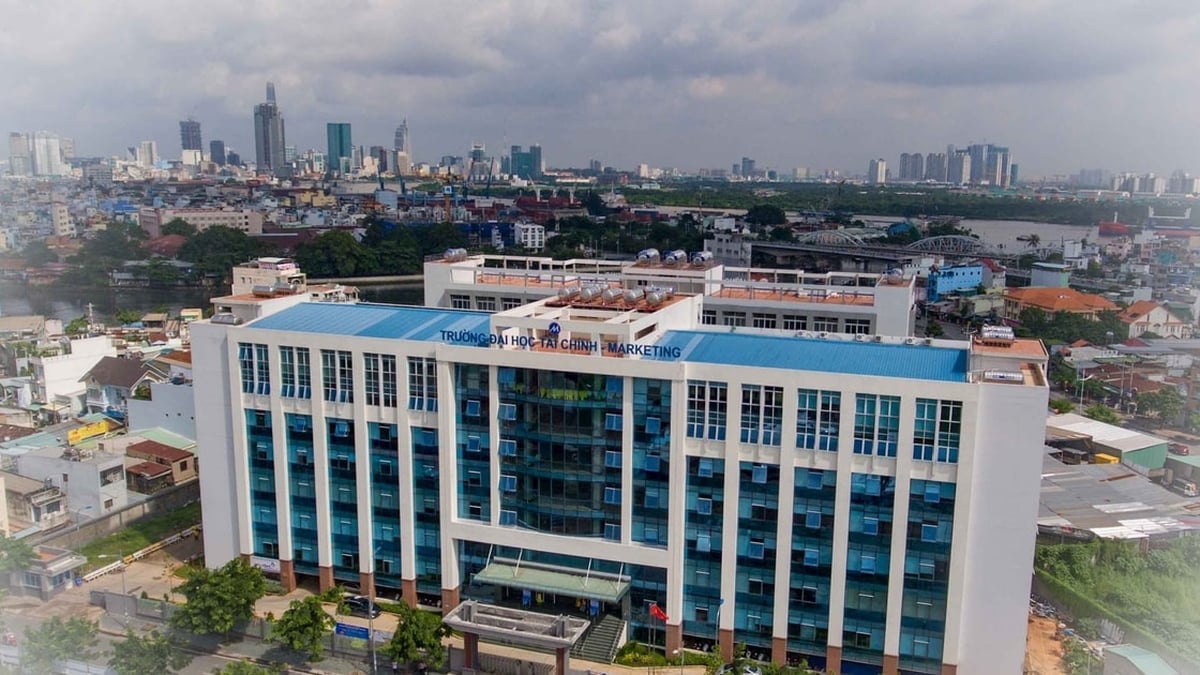

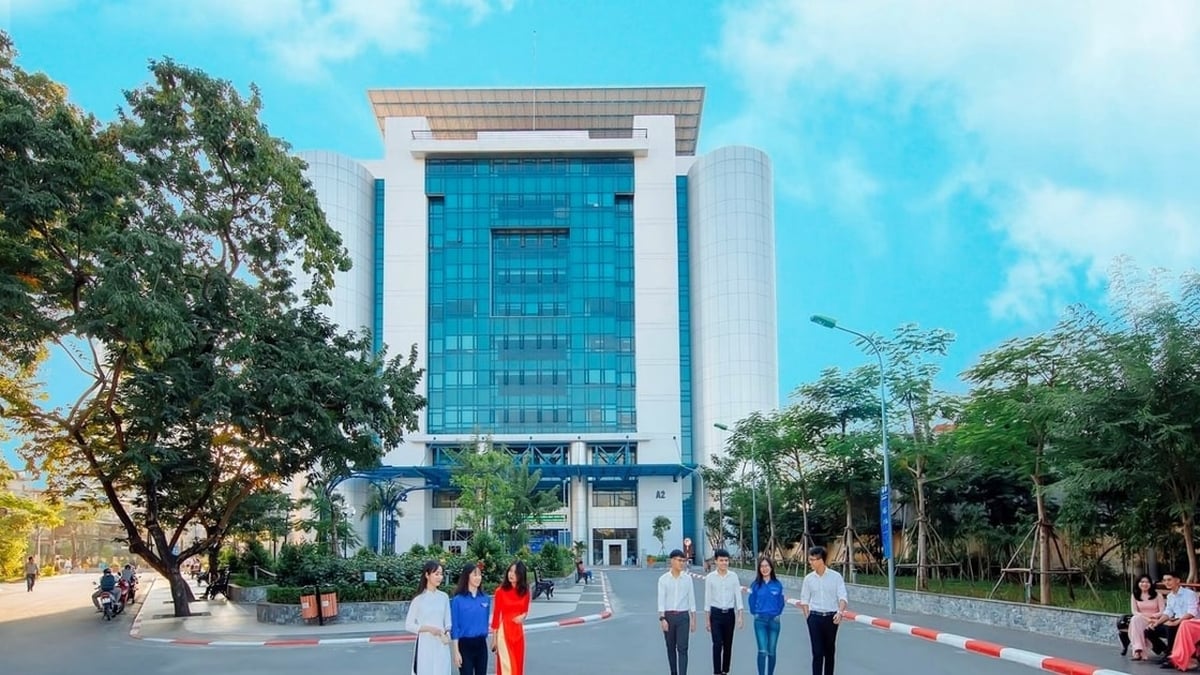

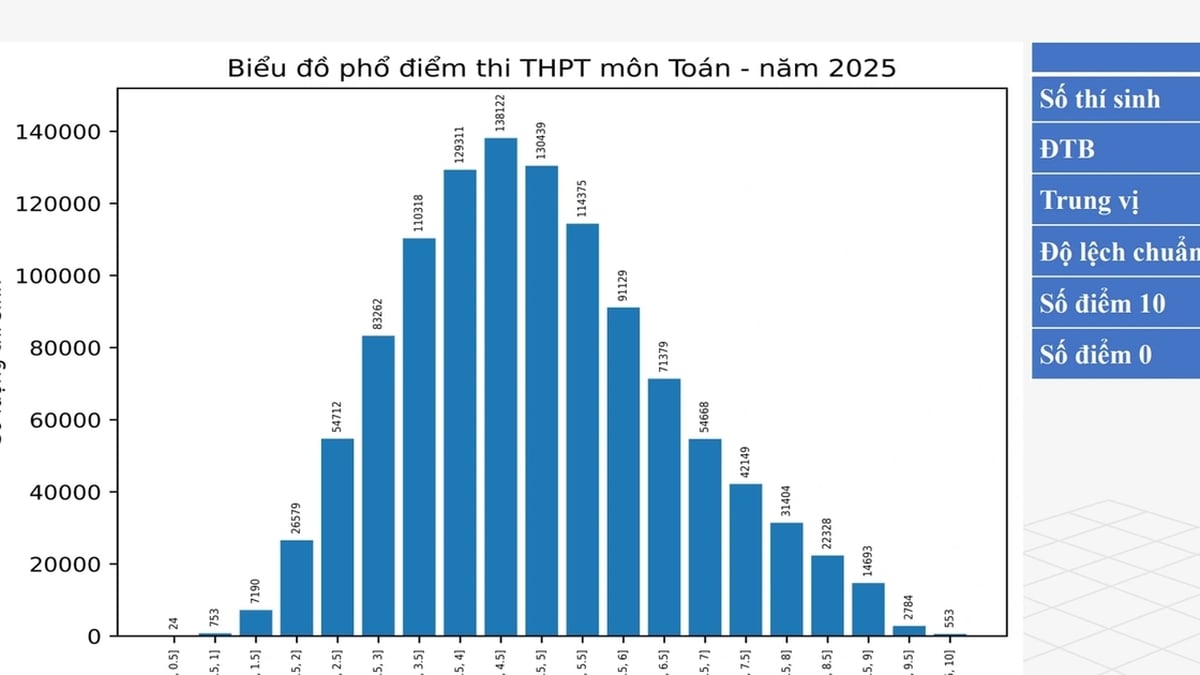


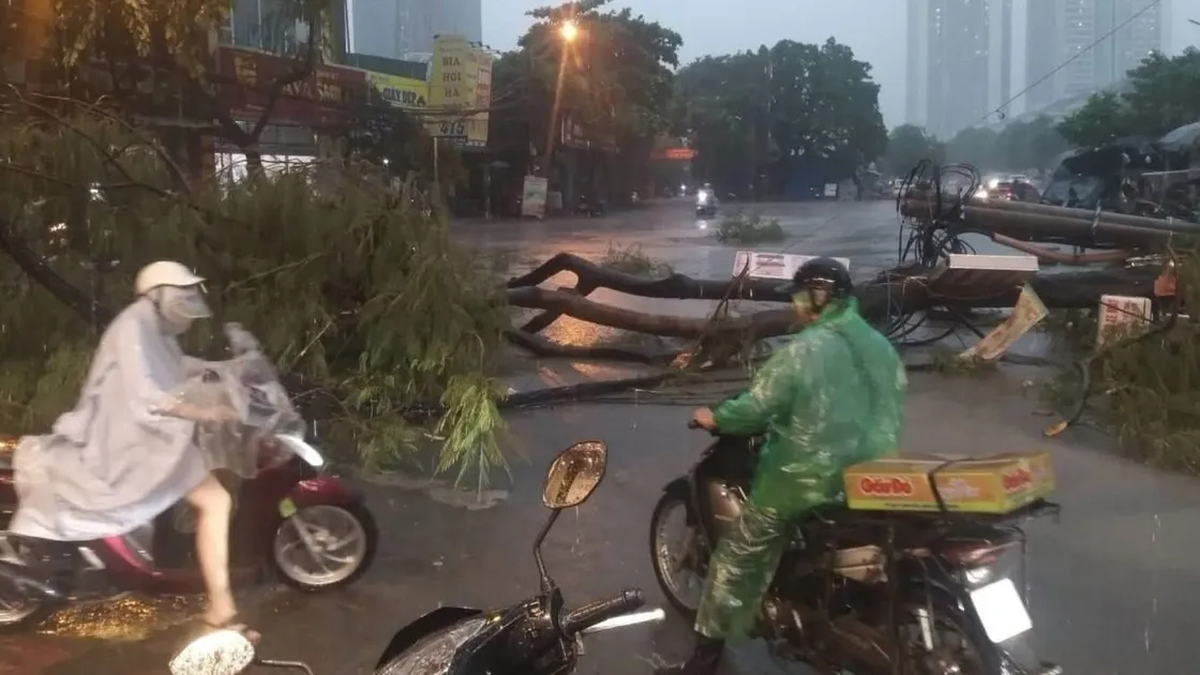






















































































Comment (0)